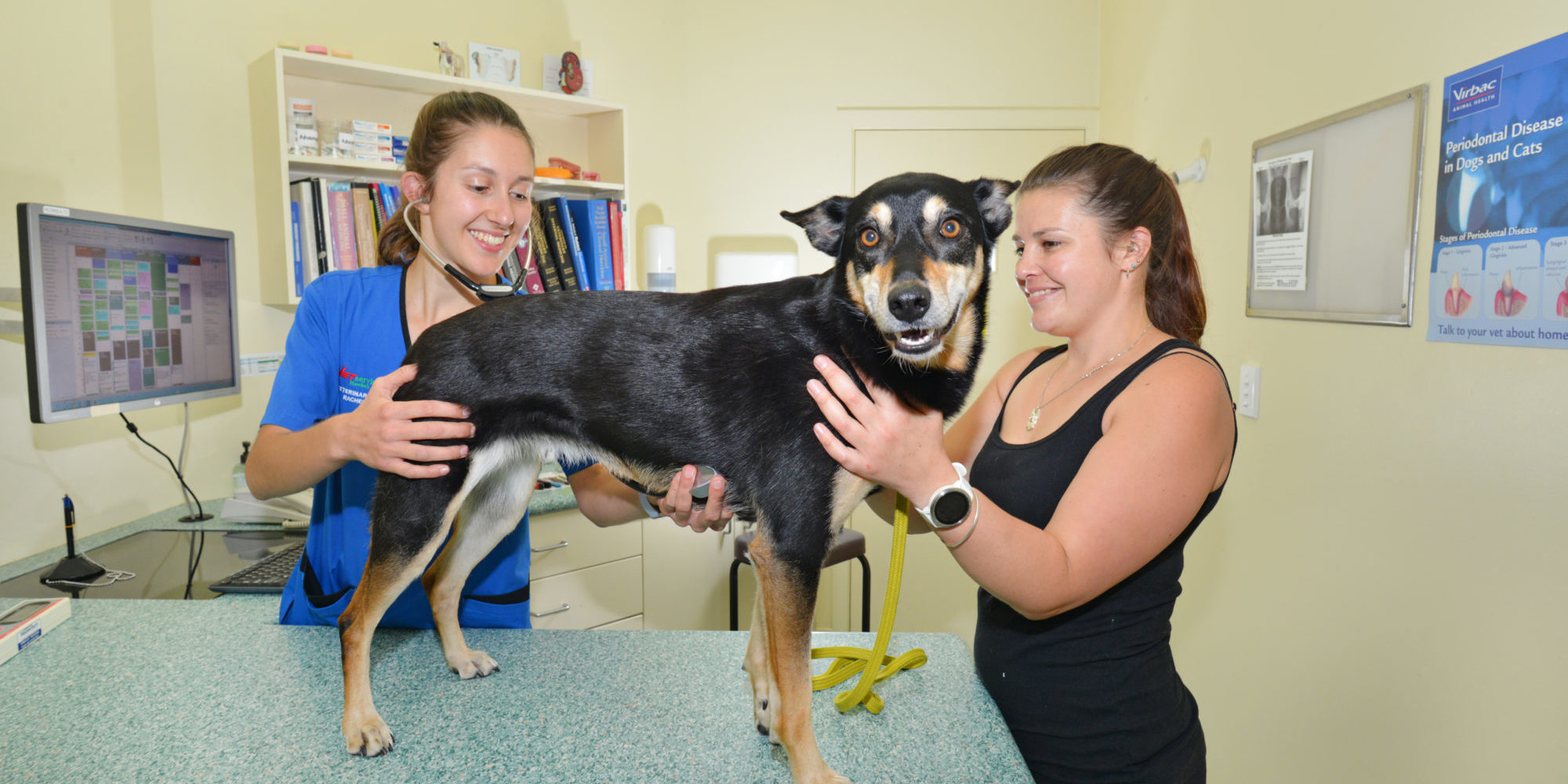Why are health checks so important?
As they say, ‘prevention is always better than a cure’ and here at Vet Services we take routine health checks very seriously. Health exams are very important in assessing the condition of your pet and in helping to detect any underlying disease or problems.
Pets age five to eight times faster than humans. By age two pets have already reached adulthood. At age four many are entering middle age, and by age 8 many pets, particularly larger breeds, are entering their senior years.
Because pets age so rapidly, major health changes can occur in a short period of time, and serious conditions increase with age.
As part of Vet Services’ mission to give our patients the best care possible, we recognize the value of performing annual health checks to help diagnose and address problems before they become life-threatening.
During an annual health check, your pet will receive a thorough physical examination, starting with an assessment of their general condition and demeanour.
During your pet’s examination, your vet will ask you questions so it may pay to give some thought to any issues that concern you about your pet’s health so you can assist us in making an accurate assessment.
- Our veterinarians normally begin by inspecting your pet’s eyes, ears, nose and face for any discharge or inflammation that might indicate disease.
- Next we’ll move on to an examination of the mouth that includes the health of the teeth and gums, and a check for growths and swellings in the oral cavity.
- From there, we’ll listen to your pet’s heart beat – assessing the rhythm and character of the beat and then listen to your pet’s lungs.
- After that, the vet will palpate your pet’s internal abdominal organs – the spleen, the stomach, the liver, bladder and kidneys for any irregularities.
- We’ll check the skin and coat, feel all over for any abnormal growths and check your pet’s musculoskeletal system.
During this visit, we’ll ask you if you have noticed changes in the amount of food eaten, water being drunk and their frequency of urination because changes in these patterns can be the first sign that an illness is developing.
Should we find anything abnormal, your vet will discuss the findings with you in detail and advise you on the tests required to investigate the condition further.
At around the age of 8 our pets are classified as seniors. It is then extremely beneficial to have a yearly blood and urine sample taken and have these tested to see how their organs are functioning and if there is anything we can do medically to help prolong a happy and healthy life and to prevent or slow the onset of disease. If we obtain the base line blood and urine levels now, it gives your vet a measuring stick as they continue to age or become unwell. We offer a nurse senior pet check once a year when your pet turns 8, and we recommend this be spaced out between your yearly veterinarian health checks.
Please do not hesitate to phone one of our vets if you have any concerns about your pet between now and your next visit.






